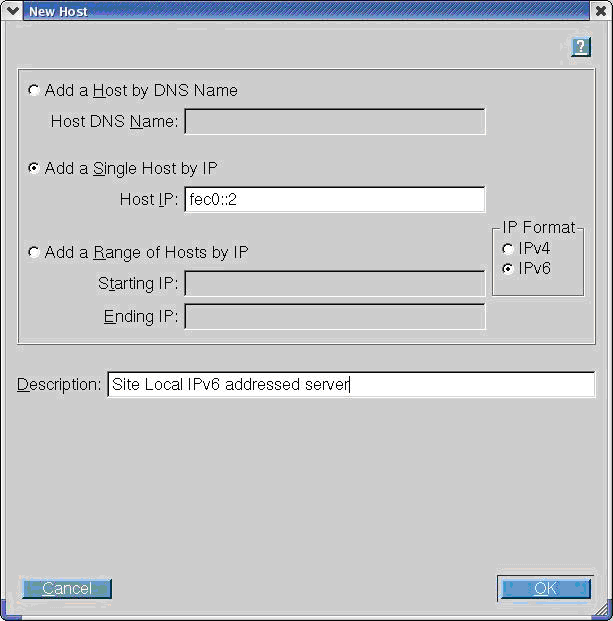HP Smart Update Manager provides the most robust support for remote deployment when using Windows Vista® as a client to Windows Server® 2008-based servers. Using HP Smart Update Manager in this environment enables you to use all the capabilities of IPv6 including link-local, site-local, and global IP addresses for both local and remote target servers. Windows Vista®, when used as a client to run HP Smart Update Manager to remote Windows Server® 2008 operating systems or as a target operating system on HP Workstation server blades, provides the infrastructure that supports full IPv6 deployment of software and firmware updates from HP Smart Update Manager.
|
|
NOTE: Windows® XP clients are not supported in IPv6 networks for HP Smart Update Manager deployment. |
IPv6 addresses can be passed to HP Smart Update Manager in command line arguments or using the HP Smart Update Manager user interface. In the HP Smart Update Manager user interface, you can add a remote host on an IPv6 network by either entering the DNS name of the IPv6 target server or by selecting the IPv6 address button and entering the IPv6 address. HP Smart Update Manager supports both the short-name and full IPv6 notation. You do not need to add the optional interface number when you enter the address.

If you cannot connect to the target server or receive a Discovery failed message when executing HP Smart Update Manager in an IPv6 environment, see the troubleshooting section.
After you connect to the target server, all other HP Smart Update Manager functions work identically. Log files for IPv6 hosts are stored with all other HP Smart Update Manager files in the \CPQSYSTEM\hp\log\<ip_address> directory.